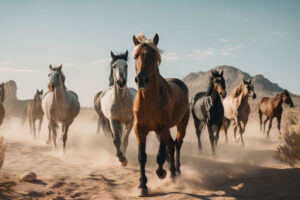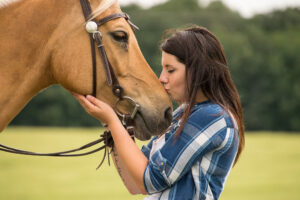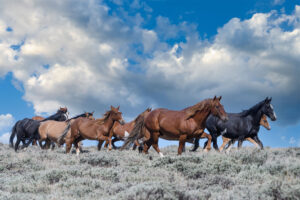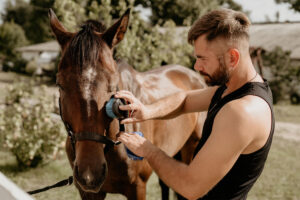
How horses changed history: Throughout the annals of history, few creatures have left an indelible mark on human civilization as horses have. From their domestication in historic instances to their pivotal function in revolutionizing transportation, agriculture, and battle, horses were steadfast partners and instrumental agents of change. This article delves into the multifaceted ways in which horses have converted human records, changing the route of societies and permitting progress throughout the globe.
The Dawn of Domestication
The origins of the horse-human partnership hint again hundreds of years to the Eurasian steppe, in which wild horses were first tamed. Archaeological evidence indicates that around 4000 BCE, human beings started out the method of domesticating horses for his or her software in labor and transportation. This occasion marked a turning point in human civilization, because it facilitated the movement of people, items, and thoughts over long distances.
Domesticated horses provided human beings newfound mobility, revolutionizing change, verbal exchange, and exploration. Early civilizations, consisting of the Sumerians, Egyptians, and Chinese, harnessed the power of horses to drag plows and chariots, accelerating agricultural productivity and reshaping economies.

The Horse-Powered Expansion
As societies advanced, horses played a crucial function inside the growth of empires and the change of cultures. The Silk Road, a community of exchange routes connecting East and West, relied closely on the stamina and power of horses to traverse considerable distances throughout hard terrains. This facilitated the exchange of goods, technologies, and ideas, laying the foundation for the interconnected global we inhabit today.
The domestication of horses additionally spurred the development of specialized breeds suited for different obligations. For instance, the speedy Arabian horse have become famend for its patience and played a pivotal function within the Islamic conquests of the seventh and 8th centuries. Similarly, the robust European warhorse carried knights into conflict throughout the Middle Ages, shaping the results of conflicts and influencing the power dynamics of the time.
Galloping into Modernity
The creation of the Industrial Revolution within the 18th century added profound changes to society, however horses endured to be integral. They powered the early levels of industrialization by means of hauling uncooked substances and completed merchandise, ensuring the functioning of factories and the growth of urban centers. However, the most transformative exchange brought about via horses become yet to return.
The 19th century witnessed a monumental shift with the invention of the steam engine and the subsequent upward push of railroads. Horses regularly relinquished their function because the primary mode of long-distance transportation, however this transition brought about their increased attention in agriculture. Horses remained vital in plowing fields, transporting items within towns, and serving as a source of electricity earlier than tractors and cars became common.
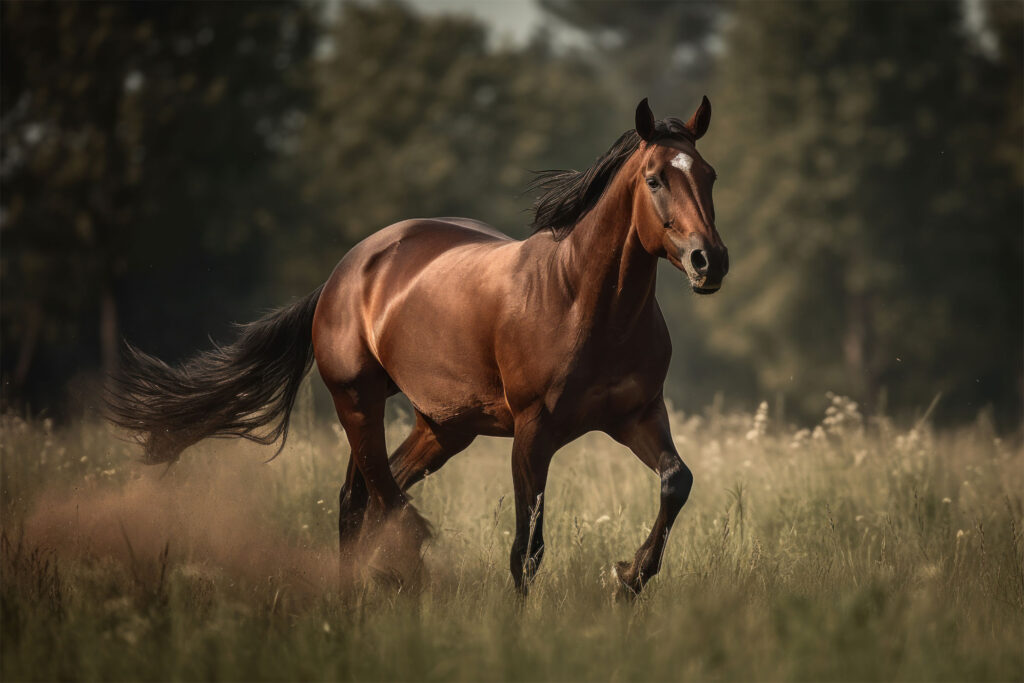
Horses of War
One of the most impactful factors of the horse’s ancient legacy is its function in battle. Throughout antiquity and the medieval length, hooked up warriors inclusive of the Mongol horsemen, European knights, and Central Asian steppe tribes wielded titanic affect at the battlefield. The mobility and surprise fee that horses provided allowed armies to exploit weaknesses in enemy strains and rapidly maneuver to benefit strategic advantages.
The tactics of cavalry charges and flanking maneuvers revolutionized war, reshaping the consequences of battles or even entire wars. Horses have become synonymous with army strength, and the bond between horse and rider reached a level of harmony that exemplified the pinnacle of partnership among human beings and animals.
A Modern Paradigm Shift
As the 20th century stepped forward, mechanization and technological improvements faded the pony’s sensible significance in daily life. Tractors, automobiles, and airplanes replaced horses in many areas, relegating them to recreational and competitive pursuits. Despite this shift, horses never misplaced their symbolic fee and persevered to play a vital function in cultural expressions, from rodeos and horse racing to equestrian sports activities and remedy.
Moreover, horses remained a vital a part of rural economies in numerous elements of the arena, specifically in regions in which mechanization lagged at the back of. Their potential to navigate choppy terrain and perform obligations that machines struggled with ensured their persevered importance in positive agricultural practices.
Horses inside the Modern World
In the twenty first century, horses have developed into symbols of grace, beauty, and companionship. They are now not a number one mode of transportation or a army asset however have located new roles as therapy animals, help partners, and athletes in diverse equestrian disciplines. The bond among human beings and horses endures, serving as a reminder of our shared history and the long-lasting legacy of our partnership.
Horseback driving remains a popular leisure pastime, connecting humans with nature and supplying a unique sense of freedom and connection. Therapeutic using applications have emerged, harnessing the calming and empowering results of interacting with horses to assist individuals with bodily, cognitive, and emotional challenges.
Conclusion
The history of horses is a testament to the profound effect that animals will have on shaping human civilization. From their early days as domesticated workhorses to their pivotal roles in exchange, transportation, and warfare, horses were steadfast partners during our journey. While their practical utility has waned in modern-day instances, their enduring importance in way of life, sport, and therapy underscores the lasting bond between human beings and horses. As we gallop into the future, allow us to keep in mind and honor the timeless partnership that has fashioned records and enriched our lives in endless approaches.

